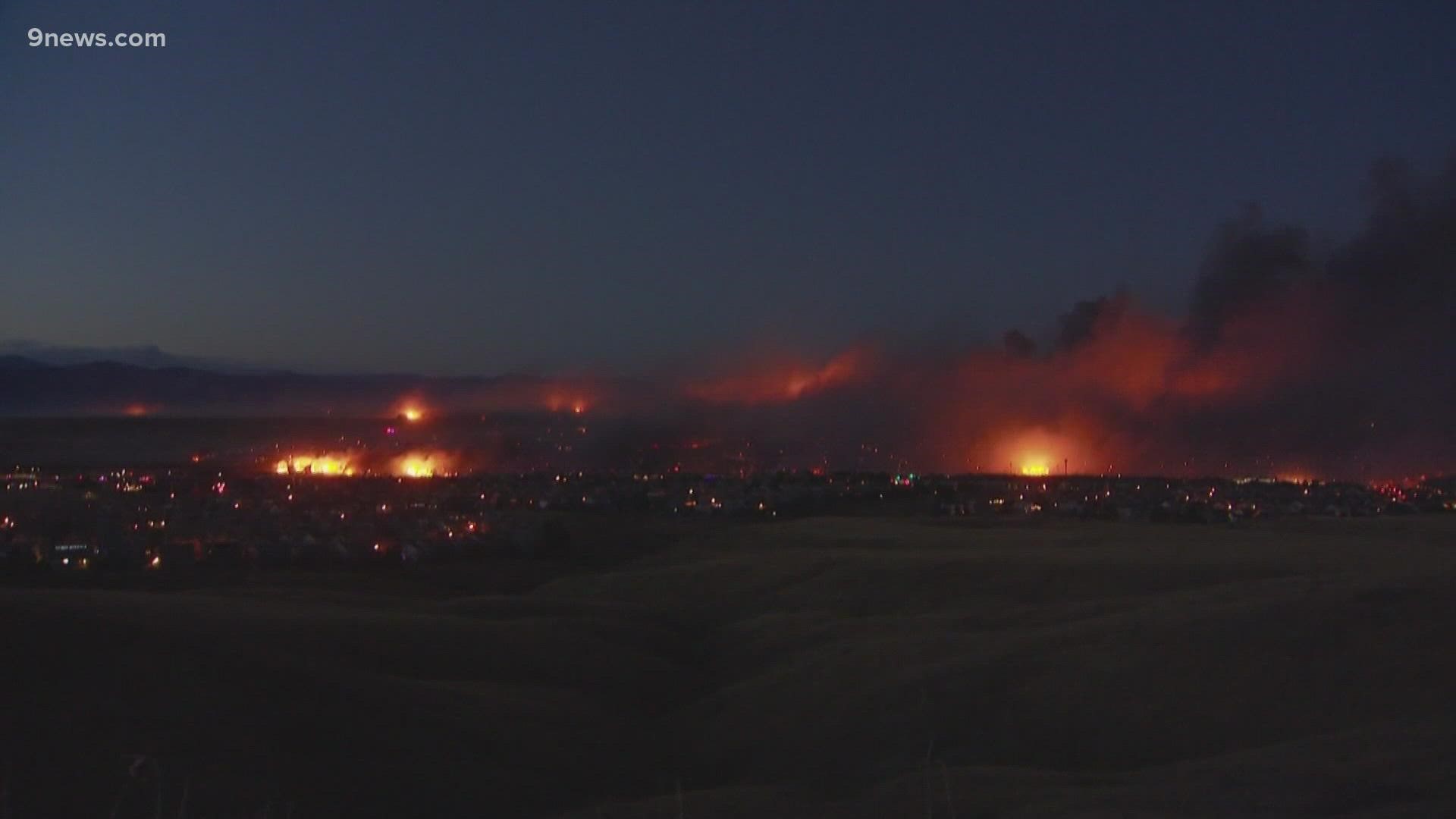LAFAYETTE, Colo. — As the Marshall Fire spread, a line of ambulances 40 to 50 deep waited in the parking lot of Good Samaritan Hospital. An entire intensive care unit (ICU) was evacuated in Lafayette last Thursday as doctors and nurses feared the flames could overtake the hospital.
They had a matter of minutes to transfer the sickest patients.
"Very quickly it turned into a whirlwind of what do we do next, how do we support our staff and how do we support our patients and their families," said Heather Dose, a clinical nurse manager who was working in the ICU Thursday. "It went from controlled chaos to just a controlled, normal, ICU day of this is what we have to do so let's get it done."
Fifty-five patients would be evacuated to other hospitals. The sickest went first.
"Of those patients, about 18 or 19 of them were extremely sick, on ventilators. Many of them were in the prone position and had to be flipped and when we flipped them we had to make sure they stayed stable," said Dose. "There was an ambulance line of no shorter than 40 of 50 ambulances sitting in the parking lot just waiting for us to tell them which patients to take."
Dr. Daniel Possley was preparing for surgery when he could tell something was wrong from inside the operating room.
"It’s not good when the OR smells like smoke. That’s a problem," said Possley, an orthopedic spine surgeon with Orthopedic Center of Colorado. "The last time I had a surgery stopped was in Afghanistan. There, you do smell smoke often. It really brought me back to that."
The surgery was rescheduled and he went home to evacuate his own family.
"Being a surgeon, you have two families," said Possley. "Your own family and then your patients. I’m thinking about my family and my patients and then you’re thinking about the community. I live minutes from here."
Hospitals prepare for everything. Even for Bryan Flemming, a fire like this was unexpected. He’s the assistant director of emergency management for SCL Health.
"We prepare for a lot of things. Our emergency plans are broad. They prepare for fire, flood and pandemics. This was certainly a worst-case event for fires," said Flemming. "I think what was different was that we never expected it to actually threaten the hospital itself. Most of our response preparedness around fires is to receive patients from those events. This actually threatened the community and the facility itself."
The fire spared the hospital when the winds calmed down. By that point, the ICU was empty – a surreal sight.
"We looked at the board and it’s the first time I’ve ever in my nine years at Good Samaritan seen that board be completely empty with no patient names," said Dose. "I think that’s when it hit all of us that this is what we just did and we did it to keep our patients safe."
The impact of the fire on the hospital system went far beyond Good Samaritan. All four of the SCL hospitals in the metro area activated emergency protocols.
In a year where hospitals are already crowded, patients had to be transferred anywhere that had room for them.
Since this was such an unprecedented event, they’re using this situation to update their emergency procedures at other urban hospitals. Urban wildfires don’t happen very often, but now this fire showed it’s possible and they need to be prepared.
SUGGESTED VIDEOS: Wildfires in Colorado

